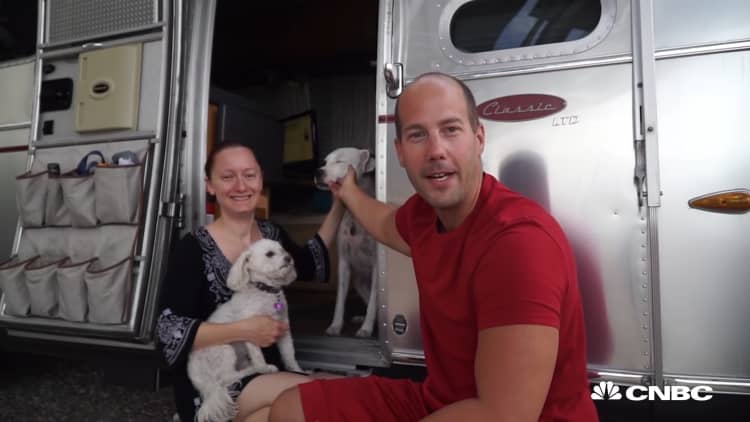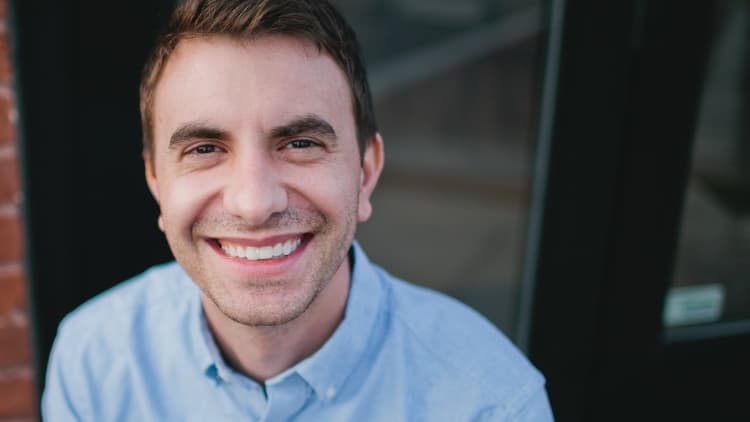In 2010, Chris Reining committed to becoming financially independent. He set the goal of building a $1 million portfolio by age 35, cut back on his expenses and started aggressively socking away money. He worked his way up to saving more than half his income, reached the $1 million mark at 35, as planned, and officially retired in 2016 at age 37.
But, he says, saving isn't enough. If you want to become a millionaire or settle down early, "quit saving your money," Reining writes on his blog, and start investing it.
Say you decide to earmark $100 each month. If you let it sit in a standard savings account that offers an interest rate of 0.01 percent, it'll grow to about $36,000 over 30 years. If you put it in a high-yield savings account that offers 1 percent, it'll amount to about $42,000 over 30 years.
But if you invest your $100 every month and assume a 7 percent rate of return, it will grow to more than $120,000 over 30 years.
As Reining puts it: "The difference between 1 percent and 7 percent can change your life, and that's why investing is so important."
"If you want financial freedom," he continues, "it's not about working harder, or smarter or longer. It's about making the shift from working for money to having your money work for you, and you can't do that by saving. You have to invest."

Early retiree Steve Adcock, who left his career in information technology at age 35, brings up the same point. "Just saving money doesn't get you rich," he tells CNBC Make It.
"Ordering water instead of soda or beer at restaurants might save you a few hundred over the course of a year. But let's face it: A few hundred isn't life-changing money," he elaborates on his blog. "Don't get me wrong, saving money is great. It's wonderful. It all helps. It's just not the magic sauce to early retirement."
You've got to invest, he says, and make your money work for you.
"Instead of keeping your savings in your bank account, which is definitely better than nothing, put that money in the market," Steve tells CNBC Make It. "Over the long run, that compound interest is going to add up."
If you want to put your money to work, the simplest starting point is to invest in your employer's 401(k) plan, a tax-advantaged retirement savings account or other retirement savings account, such as a Roth IRA or traditional IRA.
You can also research low-cost index funds, which Warren Buffett recommends, and online investment platforms known as robo-advisors.
Adcock prefers target date retirement funds. "We just throw money into our brokerage account and literally forget it," he writes. "There's no secret sauce to getting rich in the market. Besides time. You gotta give it time."
Don't miss: Self-made millionaire says the mindset he adopted in his 20s helped him retire in his 30s
Like this story? Subscribe to CNBC Make It on YouTube!




